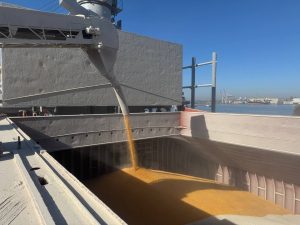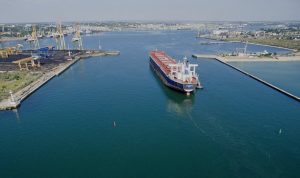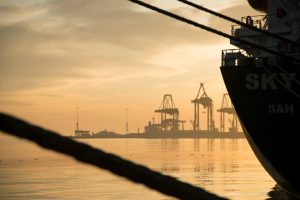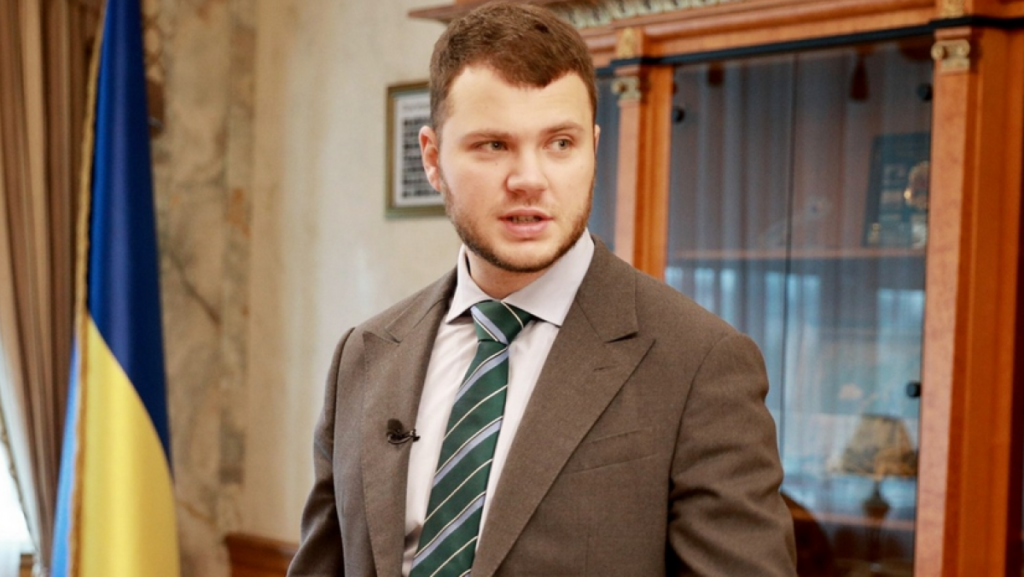Vladislav Krykliy: what has the Minister of Infrastructure changed in the country’s maritime industry
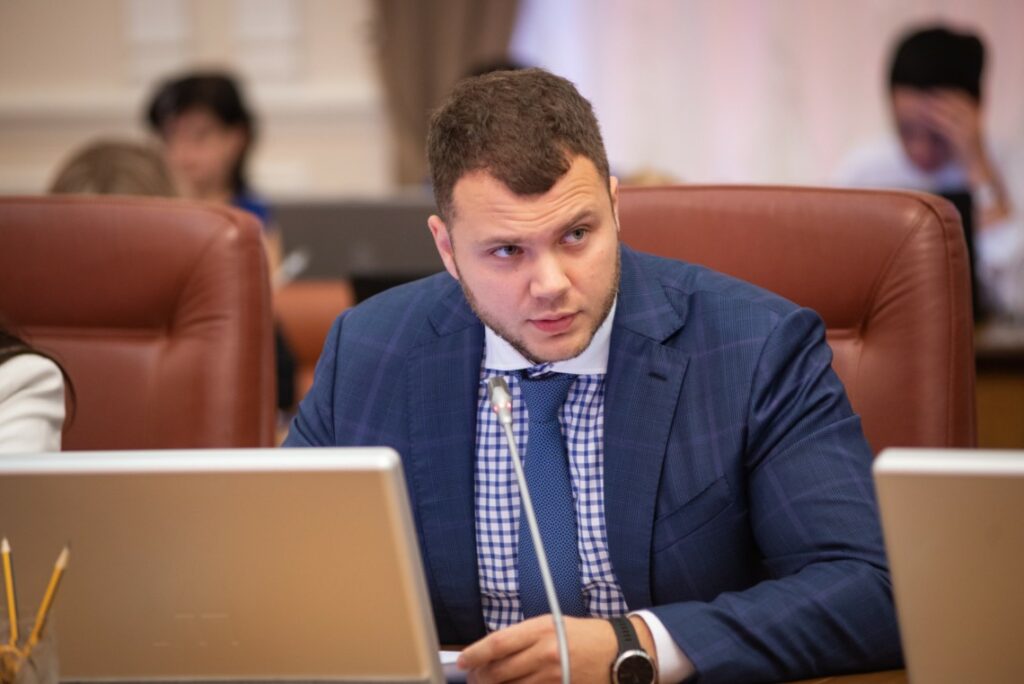
On Friday, May 14th, the Minister of Infrastructure of Ukraine Vladislav Krykliy submitted his resignation. USM has prepared a chronology of the minister’s activities and achievements, in particular in the field of water transport.
Reference: Vladislav Krykliy is a Ukrainian politician and expert on the implementation of information technologies. Age – 34 years old. PhD in Economic Science, the topic of dissertation research – “Non-state pension funds in the pension system in Ukraine.” Parliament member of Ukraine of the 9th convocation from Sluga Naroda party. Vladislav Krykliy became the Minister of Infrastructure of Ukraine on August 29, 2019.
From 2002 to 2008, Vladislav Krikliy worked as the head of the department for work with securities in the stock market at CB Interbank. Then he worked for two years in the corporate finance department at the investment company Astrum Investment Management. From 2011 to 2013 was the director of LLC “Kino-theater”. And in 2014, Vladislav Krikliy began his career in state authorities, taking the position of adviser to the Minister of Internal Affairs Arsen Avakov. From November 2015 to August 2019 He was the head of the Main Service Center of the Ministry of Internal Affairs, headed the working group on the introduction of automatic photo and video recording of traffic rules in the Ministry of Internal Affairs.
Vladislav Krikliy’s activities as Minister of Infrastructure began on August 29, 2019. The minister started with projects of concessions for the country’s seaports: in October 2019, Verkhovna Rada (Parliament) adopted a concession law that allows private business to be attracted to the management of state property.
Thus, the Kherson Sea Trade Port became the first one transferred to a concession. In January 2020, the Cabinet of Ministers announced the winner of the competition – the Risoil-Kherson company. Already on January 24, the winner of the tender for the concession of the property of the State Enterprise Stevedoring Company (SC) Olvia was announced – it was the Qatari company QTerminals.
“Public-private partnership is our priority, so we are not stopping,” the minister said about the concession.
Then, in January 2020, Vladislav Krikliy announced the preparation of concession projects in the seaports of Mariupol, Berdyansk, Odesa and Chornomorsk. In February, the minister announced that it is planned to privatize the Belgorod-Dnestrovsky, Skadovsky and Ust-Danube seaports, since the chance of transferring these objects to a concession is extremely small.
In May 2020, the Ministry of Infrastructure developed and promulgated for discussion a bill on the creation of a special National Commission, whose task is state regulation, monitoring and control in the field of transport.
In June 2020, Chornomorsk Harbor was announced as the following concession project: within the order of the Ministry of Infrastructure №368 of June 24th, 2020, preparations began for the transfer of the territory of the ferry complex and the rear of the berths №1-6 (the first cargo terminal and container terminal) of the port to concession. The start of the concession project was announced in August, at the same time the competition for the selection of consultants for the preparation of a feasibility study (FS) and tender documents began.
In July, MIU presented bills “On Ukraine’s accession to the International Convention on the Control and Management of Ships ‘Ballast Water and Sediments of 2004” and “On Amending Certain Legislative Acts of Ukraine in connection with Ukraine’s accession to the International Convention on the Control of Ships’ Ballast Water and Sediments and their management in 2004 ”.
Already in September 2020, information appeared that the Odessa, Izmail, Berdyansk and Skadovsk ports were preparing for the concession. Vladislav Krykliy was determined to reform the Ukrainian ports and said that the ministry was “ready for various experiments.” However, the Skadovsk port concession is a different story: initially the port was planned to be privatized, and the State Property Fund (SPF) even managed to add the object to the list of those that could be transferred to private ownership. In October, the project for the privatization of the port of Skadovsk was again submitted for consideration, but the SPF said that the port’s property was seized, as well as a ban on alienation.
The Odessa port concession project was suspended altogether: in November 2020, it was reported that the concession would begin with the port’s passenger complex, but the process was never launched. A similar situation has developed with the Izmail port concession project, which remained at the stage of preparing the feasibility study.
At the end of September, the Cabinet of Ministers adopted a resolution that expanded the list of waterways for navigation on them.
In December 2020, Vladislav Krykliy announced the ambitious plans of the Ministry of Infrastructure for the privatization or concession of all seaports of Ukraine within 4 years.
Being Minister of Infrastructure, Vladislav Krikliy was able to launch the implementation of the Law on Inland Water Transport, which had been discussed for many years. According to the minister, without this law, Ukraine will not be able to either reform or develop the sphere of river transport throughout the country, and a compromise “will be beneficial for everyone, but it must finally be reached.” At the end of April 2020, the Verkhovna Rada adopted in the first reading the bill No. 1182-1 on the regulation of the work of inland water transport. Then the bill was sent for preparation for the second reading. The minister argued that the adoption of the law would increase the flow of goods along the country’s river routes to 30 million tons per year. The ministry also promised that the law would open up opportunities for Ukraine to develop shipbuilding, introduce a system of free passage through locks, partially exempt inland navigation vessels from port fees, attract foreign investment, introduce European norms, and much more.
Nevertheless, the bill has become the cause of many disagreements between the authorities and business representatives. The European Business Association voiced its comments on the bill regarding the “anti-deregulation” of doing business, financing inland waterways through port dues, as well as an unfinished initiative to create a state fund for inland waterways as part of the state budget special fund.
Discussion and preparation of the bill lasted until winter, and on December 3 it was finally passed. Then Vladislav Krikliy clarified that the authors of the bill took into account the proposals of business representatives, with whom they jointly finalized the bill. However, later the general director of the Nibulon company, Aleksey Vadatursky, criticized the new law in his open letter and called on President Volodymyr Zelensky to veto it, but he, in the end, signed the document anyway.
Also an important event in the maritime industry was the approval by the Ministry of Justice of the order dated April 6, 2021 No. 201 “On Amendments to the Regulatory Acts of the Ministry of Transport and Communications of Ukraine and the Ministry of Infrastructure of Ukraine”, which implements an automated system for testing seafarers without the participation of a human examiner. and also allows seafarers to confirm their existing rank without passing qualifying exams – “so that the ‘helpers’ not help to do faster”.
But in this matter, Vladislav Krikliy expected ‘pitfalls’: last week, the Kiev District Administrative Court suspended his order to cancel the mandatory confirmation of the qualifications of seamen. The minister himself did not comment on the court’s decision.
USM previously provided its own analysis of infrastructure infrastructure called the To Do List. Regarding the news of the resignation of Minister Vladislav Krikliy, summing up the results of the work of the MIU turned out to be very relevant.

